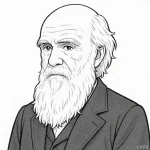“Man is the only animal that blushes – or needs to.”

- November 30, 1835 – April 21, 1910
- American
- Author, humorist, and lecturer
table of contents
Quote
“Man is the only animal that blushes – or needs to.”
Explanation
Mark Twain’s quote reflects on the unique nature of human self-awareness and social behavior. The act of blushing—a physiological reaction tied to embarrassment, guilt, or shame—is something that distinguishes humans from all other animals. Twain’s observation suggests that while humans are capable of feeling self-conscious or ashamed in social situations, other animals do not experience these emotions in the same way. The second part of the quote, “or needs to,” introduces an ironic twist, implying that humans might be the only species that blushing is necessary for, as it signals moral or social discomfort. Twain’s statement thus humorously critiques human vulnerability to social norms and expectations, highlighting how these emotions may be a construct rather than a natural necessity.
Twain’s wit often involved poking fun at the peculiarities of human nature, and in this case, he points out that our capacity for shame—a trait that is often seen as a social regulator—is perhaps unnatural in its intensity. In a way, blushing might be seen as an involuntary admission of imperfection or self-criticism, revealing a level of self-consciousness that no other animal seems to exhibit. His remark suggests that perhaps this capacity for embarrassment is not always a virtue, but instead a social construct that serves to reinforce conformity and the need to meet certain standards.
In modern life, this quote resonates in the context of social anxiety, public image, and personal identity. Humans today are often concerned with how others perceive them—in both personal and professional contexts—leading to feelings of shame or the urge to conform. Blushing, while a natural reaction, often reflects deeper feelings of insecurity or fear of judgment. Twain’s observation invites us to reflect on the paradox of human vulnerability: while our emotional and social awareness can lead to growth and self-improvement, it can also create anxiety and self-doubt. His humor encourages us to consider whether such self-consciousness is truly necessary or whether it simply highlights the complications of being human.
Would you like to share your impressions or related stories about this quote in the comments section?



